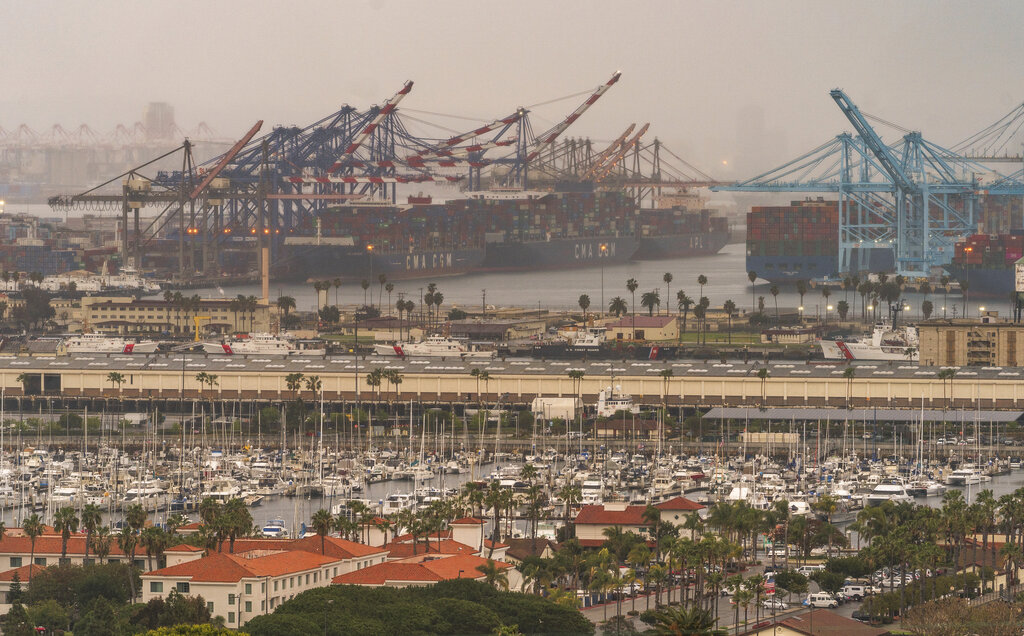
THE Covid-19 pandemic has sorely tested the resiliency of supply chains, turning up weak points in trade networks, inventories and financing. And, if there is one lesson that the pandemic has taught the world, it is that lean and mean supply chain management is no longer a viable strategy in global trade, according to an Asian Development Bank (ADB) report.
In the Asia Pacific Trade Facilitation Report, ADB and the United Nations Economic and Social Commission for Asia and the Pacific cited a need for greater regional and global cooperation to ensure that global trade remains unimpeded.
Efforts to improve trade facilitation, especially through the adoption of digital trade schemes alone, ADB and Unescap said, could reduce trade costs by over 13 percent.
“The Covid-19 pandemic has provided many hard-earned lessons and created a paradigm shift in keeping supply chains more resilient. Lean supply chain management once known for efficiency may no longer be a valid strategy in certain sectors without taking into account potential risks for crises like the Covid-19 pandemic,” the report stated.
“With every part of the world encountering wide and deep repercussions, regional and global ‘collaboration’ has become even more important among many other capabilities toward supply chain resilience,” it added.
The pandemic, ADB Knowledge Management and Sustainable Development Vice President Bambang Susantono said, highlighted supply chain weaknesses partially for critical goods on vaccines; personal protective equipment; and food.
The Escap-ADB study underscored the need to strengthen the resilience of supply chains as the Covid-19 pandemic laid bare the vulnerabilities of concentrated trade networks, limited inventories and financing shortages.
High global value chain participation left Asia and the Pacific particularly vulnerable to restrictive trade policies.
Based on the report, Asean-4 had the highest trade costs globally at 76.7 percent between 2014 and 2019. Asean-4 includes Indonesia, Malaysia, Philippines and Thailand.
“Border closures, export controls and health and safety protocols have disrupted production and the flow of goods across international boundaries, with dire effects on the supplies of critical goods such as food, personal protective equipment and vaccines, especially for the poor and vulnerable,” Susantono said.
The role of multilaterals has also been highlighted by the report. Efforts exerted through the help of multilateral agencies have facilitated access for critical goods.
Through the Asean plus Three Emergency Rice Reserve, the Philippines received a total of 1,000 MT of rice in donations from the Republic of Korea, in response to a typhoon.
Other countries that accessed the facility were Myanmar which received 600 MT of rice; while Japan donated 300 MT for Cambodia in response to flood, drought, and the Covid-19 pandemic.
The report said ADB’s initial response of $6.5 billion was raised to $20 billion early in 2020 to support countercyclical measures in its developing member-countries.
This included providing $1.5 billion each for India, Indonesia, the Philippines, and Thailand for disease containment and social protection support for economically vulnerable groups.
“Multilateral institutions also play a key role in advancing free trade and helping countries implement trade facilitation measures. An integrated global economy requires open trade regimes, harmonized customs systems with interoperable digital infrastructure, as well as full implementation of the WTO Trade Facilitation Agreement,” the report stated.
However, economies in the region have shown continued progress in streamlining trade procedures despite the Covid-19 pandemic, and the subsequent supply chain disruptions and surge in shipping costs—which hit an all-time peak this year.
Implementation of 31 general and digital trade facilitation measures rose on average across the region to 64.9 percent in 2021, about 6 percentage points higher than in 2019.
The Escap-ADB study underscores the need to strengthen the resilience of supply chains as the Covid-19 pandemic laid bare the vulnerabilities of concentrated trade networks, limited inventories and financing shortages.
The report added that high global value chain participation left Asia and the Pacific particularly vulnerable to restrictive trade policies.
“In addition to digitalization, there is also a need to pursue trade facilitation policies that make trade more sustainable and inclusive, leaving no one behind,” said Armida Salsiah Alisjahbana, United Nations undersecretary general and Escap executive secretary.
She added that measures are specifically needed to support small and medium-sized enterprises, women and the agricultural sector to make recovery more sustainable.
The Unescap report further highlights the role of the WTO Trade Facilitation Agreement and the related UN treaty on cross-border paperless trade in Asia and the Pacific to accelerate recovery post-Covid-19 while trade openness remains a key element.
As the pandemic hastened trade digitalization, Unescap said more work is needed to leverage digital technologies to streamline customs procedures and electronic exchange of information, and implement national and regional single windows for document submission and clearance.

